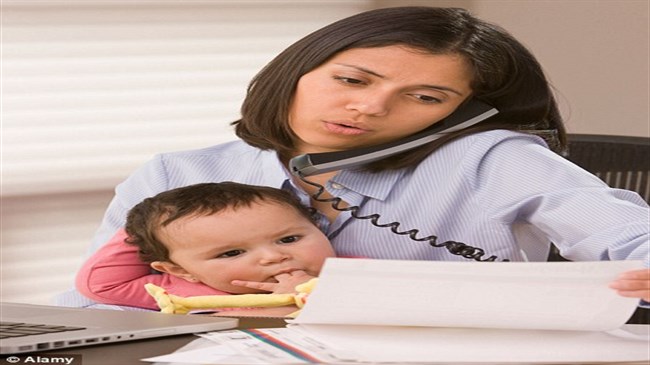They may have had more than a sneaking suspicion that it was the case, but now working mothers have the data to back it up: They are indeed more stressed than other people — 18 percent more, in fact
And that figure rises to 40 percent for those with two children, according to a major study that analyzed 11 key indicators of chronic stress levels, theguardian.com reported.
Professor Tarani Chandola, of Manchester University, and Dr. Cara Booker, Professor Meena Kumari and Professor Michaela Benzeval, of the Institute for Social and Economic Research at Essex University, examined biological data taken by nurses from 6,025 participants in the UK Household Longitudinal Survey, the largest survey of its kind in the world.
They adjusted the raw data to exclude other factors that could influence their findings, such as the women’s ages, ethnicity, education, occupation and income, allowing them to focus solely on working hours and family conditions.
According to their research, just published in the journal Sociology, neither working from home nor flexitime had an effect on women’s chronic stress levels. But reducing the number of hours they worked did have a positive impact.
“Work-family conflict is associated with increased psychological strain, with higher levels of stress and lower levels of wellbeing,” Chandola said.
“Parents of young children are at particular risk of work-family conflict. Working conditions that are not flexible to these family demands, such as long working hours, could adversely impact on a person’s stress reactions.”
Overall, the 11 indicators, known as ‘biomarkers’, produce something called an ‘allostatic load’, a measure of the cumulative wear and tear on the body’s physiological systems, which can indicate poor health and a greater risk of death.
“Repeated stressful events arising from combinations of social and environmental stressors and major traumatic life events result in chronic stress, which in turn affects health,” Kumari said.
The researchers found that the biomarkers indicating chronic stress, including hormone levels and blood pressure, were 40 percent higher for women working full time while bringing up two children than among women working full time with no children. Women who were working full time and bringing up one child had 18 percent higher levels of stress than women with no children.
“Flexible work practices are meant to enable employees to achieve a more satisfactory work-life balance, which should reduce work-family conflict,” Benzeval said.
“The use of such reduced-hours flexible work arrangements appeared to moderate some of the association of family and work stressors. But there was little evidence that flexplace or flextime working arrangements were associated with lower chronic stress responses.”
Source:Irandaily



